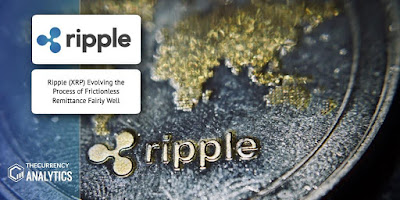EU plans new legal framework until 2024, chance for Ripple and Bitcoin?
European Commission will introduce a new legal framework until 2024 to regulate and facilitate innovation with cryptocurrencies and digital assets.
Two new documents by the institution show that the EU wants to make cross-border payments quicker and cheaper through the use of blockchain and crypto assets like stablecoins.
A report by the news agency Reuters has revealed a shift in the European Commission’s vision towards the crypto space.
According to the report, the institution will seek to remain at the forefront of financial innovation.
Therefore, a new legal framework for payments with digital assets and crypto assets is expected to be presented by 2024.
The new legal framework will clarify key issues for the crypto industry. For example, how current laws should interact with crypto assets.
In addition, the European Commission proposes that new laws be drafted where necessary. The economic crisis caused by the coronavirus pandemic has accelerated the change of view in the European Commission.
With up to 78% of payments still settled in cash, the institution will also seek to create an ecosystem that allows consumers to benefit from “instant” payments, as the European institution has stated:
By 2024, the EU should put in place a comprehensive framework enabling the uptake of distributed ledger technology (DLT) and crypto-assets in the financial sector.
It should also address the risks associated with these technologies.
Impact on adoption for Ripple and Bitcoin
In principle, a new legal framework such as that proposed by the European Commission could benefit technology such as that developed by the payment solutions company Ripple.
Through its On Demand Liquidity payment solution, Ripple is able to offer low-cost instant cross-border payment services with XRP.
In addition, the framework could create more legitimacy to payments with cryptocurrencies such as Bitcoin, Ethereum and Litecoin.
However, it will depend on the legal framework presented by the European Commission. The report by Reuters further notes that the authorities are focusing on stablecoins after the hype around Facebook’s Libra.
Therefore, the new legal framework could also give them greater priority or legitimacy for payments.
The European Commission will also work on facilitating inter-institutional cooperation by making it easier for the financial sector to share information.
In this way, the European Commission is hoping to create an ecosystem with many more services and of greater competition, but under one premise: “same risk, same rules, same regulation”.
As a result, consumers will receive greater incentives to access the services offered by the financial system.
However, perhaps one of the most important revelations of the report is the “rapid” shift that the European Commission wants to make towards instant payments.
By the end of 2021 this kind of payment is intended to be “the new normal”.
This way, the Europeans will be less dependent on U.S.-based companies such as Visa and Mastercard, with regional alternatives.
The European Commission added in the document to which Reuters has had access:





Comments
Post a Comment